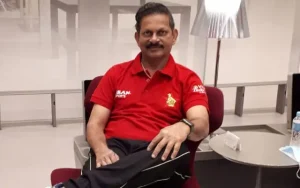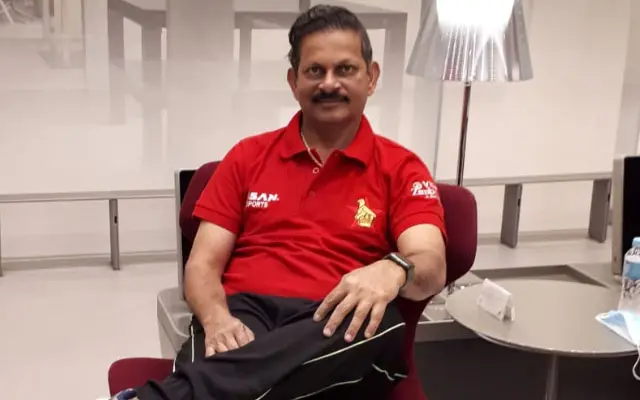
One of the reasons why Gujarat Titans finished eighth in the IPL this year was Rashid Khan’s indifferent form. The senior leg-spinner took 10 wickets in 12 matches at an economy rate of 8.40 – underwhelming by his lofty standards. By Rashid’s own admission, the ball wasn’t coming out of his hand the way he wanted it to. The Afghanistan white-ball captain found an antidote – extra hours at the nets.
Lalchand Rajput, the former India opener, wasn’t surprised when he was told about this. He recalled his time with Rashid, Mohammad Nabi and their teammates, when he was Afghanistan coach in 2016-17. “They always pushed me to train them for extra hours,” Rajput told RevSportz. “I come from the Mumbai school of cricket, and I liked that attitude.”
Afghanistan’s march to the semifinals has been the biggest feel-good story of the ongoing T20 World Cup. But this is not a fluke. Far from it. They had beaten England, Pakistan and Sri Lanka in the last year’s (50-over) World Cup. This is just the continuation. Afghanistan unarguably have been the most improved team in white-ball cricket over the last few years. What’s the reason?
“First and foremost is hunger,” said Rajput. “Hunger for success is very important, and they have that. Secondly, in their country there’s no other sport and they love playing cricket. They want to be the best in that form. And if you look at the fan following, cricket is a religion in their country, just like us. It motivates the players.”
Another aspect that has contributed to Afghanistan’s rapid improvement is the players’ ability to learn quickly. “See, so many players from their national team are playing in the IPL and other T20 leagues around the world,” said Rajput, who is currently looking after the UAE national team as their head coach. “They are rubbing shoulders with the very best, gaining experience. They are willing to work hard. And I can tell you, they are quick learners.”
Coming back to Rashid, he has put aside his IPL disappointment to bounce back spectacularly at the T20 World Cup. In seven matches so far, he has taken 14 wickets at an economy rate of 6.10. Hard work at the nets has paid off.
Rajput was effusive in his praise for the skipper. “He (Rashid) is a role model in Afghanistan. Young cricketers want to be like him. He is leading from the front. After this World Cup, Afghanistan cricket will have many heroes.”
Rajput took charge of the Afghanistan team in 2016, when they were an Associate nation. They got Test status a year later. The head coach’s advice to the country’s cricket hierarchy was to focus on multi-day format as well. Soon, four-day cricket was introduced in Afghanistan. Infrastructure was built in different provinces, as the country embarked on a new journey.
“Afghanistan have already announced their presence in limited-overs cricket,” observed Rajput. “The next step would be to do well in Tests, for that’s the ultimate. And I’m sure they will do that. They have the hunger and pride to be one of the best in the business.”
Rajput also lauded the BCCI’s contribution in helping Afghanistan’s cricket prosper. “Yes, the BCCI contributed a lot during the developmental phase of Afghanistan cricket,” he said. “We trained in Noida and the facilities were excellent.”
Even now, when Afghanistan play a white-ball series against Bangladesh in July-August, they will use the Shahid Vijay Singh Pathik Sports Complex in Greater Noida as their home venue.
As Afghanistan beat Bangladesh to reach the T20 World Cup semi-finals, there was a sharp contrast. Bangladesh became a Full Member almost two-and-a-half decades ago, but are yet to make a mark on the world stage. In fact, their cricket has retreated into a slump. Afghanistan, on the other hand, have been on a steady upward curve, so much so that they are now – to echo Michael Vaughan, the former England captain – the second-best white-ball team in Asia.




